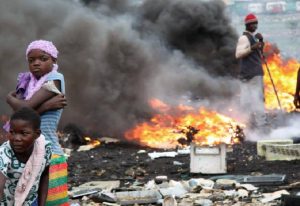AshantiBiz News Team embarks on a nationwide field survey, engaging directly with stakeholders in Kumasi, Accra, Takoradi, Cape Coast, Koforidua, and the Volta region. The findings paint a stark picture of economic hardship and disappointment, highlighting the dramatic decline in the Ghanaian cedi and the failure of many key campaign promises.
The Ghanaian cedi has taken a nosedive under President Akufo-Addo’s leadership, weakening from 4 cedis to the dollar during former President Mahama’s term to a staggering 15 cedis to the dollar today. This dramatic depreciation has significantly impacted the cost of living, driving up prices for basic necessities and hindering businesses across the country.
Our team encountered a chorus of frustration from stakeholders across sectors. Business owners, struggling to import raw materials and facing dwindling profits, express concerns about the future of their ventures. Ordinary citizens lament the escalating cost of food, transportation, and healthcare, finding it increasingly difficult to make ends meet.
President Akufo-Addo’s 2017 campaign promises, centered around economic growth and prosperity, have failed to materialize. Public sector workers, who eagerly anticipated better salaries and improved working conditions, are now facing salary freezes and a general lack of investment in infrastructure and resources.
One District, One Factory: While a few factories have emerged, many promised projects remain in limbo, leaving communities with unfulfilled hopes of employment opportunities.
Free SHS: While lauded for its access to education, the implementation has been plagued by challenges, including inadequate infrastructure and funding, impacting the quality of education.
1 Million Jobs: The promise of a million jobs has fallen far short, with unemployment rates remaining stubbornly high, especially among young graduates.
Infrastructure Development: Despite significant investments, critical projects like the Accra-Tema Motorway Expansion, have been marred by delays and cost overruns, failing to deliver on the promise of enhanced connectivity and economic growth.
The economic crisis has hit public sectors hard, impacting healthcare, education, and infrastructure development. Hospitals are grappling with a shortage of drugs and equipment, while schools lack basic resources like textbooks and qualified teachers. Deteriorating infrastructure, from roads to public buildings, reflects the lack of investment and maintenance.
Our field survey clearly shows that Ghana’s economic future is at a crossroads. Stakeholders are demanding accountability from the government and a comprehensive plan to address the current economic woes. Addressing the cedi depreciation, managing inflation, and reviving investment are crucial steps towards restoring economic stability.
AshantiBiz News will continue to monitor the economic situation and provide independent reporting on the government’s actions to address the challenges facing the nation.
Godwin Owusu Frimpong




